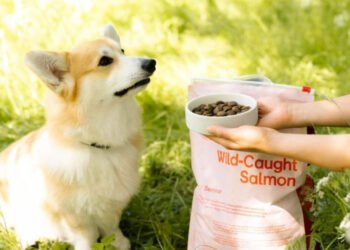The Importance of Responsible Pest Control
For pet owners, maintaining a pest-free home is about more than comfort—it’s a vital facet of caring for your animal’s well-being and preventing long-term health complications. Pest control in Cherry Hill has become increasingly important as local pet owners seek reliable ways to protect their homes from fleas, ticks, and other harmful intruders. These pests can carry diseases that impact both pets and the humans around them, turning minor irritations into significant concerns if not addressed swiftly. As urban communities continue to grow, prioritizing effective pest control helps prevent infestations from spreading within neighborhoods and ensures the ongoing safety of local families and their furry companions.
Many treatments focus on immediate eradication, but it’s equally important to evaluate the long-term effects on the environment. Responsible pest control not only centers the needs of your pets but also considers the impact on water sources, soil, and wildlife—an essential step toward sustainable living for modern pet owners.
Understanding the Environmental Impact
Most common flea and tick treatments contain insecticidal compounds such as fipronil and imidacloprid. Research shows that when these chemicals are washed off pets during bath time or transferred during hand washing, they often end up in storm drains and ultimately local rivers. Elevated concentrations of these insecticides in waterways can harm aquatic life, pollute drinking water, and disrupt natural ecosystems. According to recent studies, these substances have regularly been detected in rivers at concerning levels, putting entire aquatic food chains at risk.
In residential communities with a high density of pet households, flea control in Cherry Hill has raised growing concern due to the cumulative effect of these chemicals. Modern pest management strategies, therefore, advocate for solutions that consider not only effectiveness but also the broader ecological footprint.
Natural Alternatives for Flea Control
As awareness of environmental issues grows, there is an increasing demand for natural and plant-based pest solutions. Botanical oils—including cedarwood, lemongrass, and rosemary—are now widely recognized for their ability to repel and kill fleas while posing minimal risk to wildlife and waterways. These ingredients are often found in shampoos and sprays that are gentle enough for pets yet robust in their defense against pests. Companies and others have embraced this approach, offering a range of EPA-compliant natural flea and tick products that both pet owners and environmentalists can feel good about.
Both anecdotal reports and lab studies back the effectiveness of essential oil-based products. It’s important, however, to read product labels carefully, as some botanicals can trigger sensitivities in certain animals. Always proceed with guidance from your veterinarian, and monitor your pet for any adverse reactions when introducing new products.
Implementing Preventative Measures
Maintaining a Clean Home Environment
A crucial part of flea control begins with routine cleaning. Washing your pet’s bedding in hot water, vacuuming carpets and upholstery frequently, and decluttering both indoor and outdoor spaces are practical, proven steps in reducing flea populations. Pay close attention to the areas where your pet sleeps, plays, and spends time outside. Fleas thrive in warm and humid conditions, making regular maintenance a cornerstone of preventive strategy.
Early Detection and Grooming
Flea combs offer a simple way to identify the first signs of an infestation—before it becomes widespread. By running a fine-tooth comb through your pet’s fur, particularly around the neck and base of the tail, you can spot adult fleas and their eggs quickly. Removing any visible pests immediately limits their ability to reproduce and reduces the intensity of chemical intervention needed later.
Consulting with Your Veterinarian
Every pet is different—age, health status, underlying allergies, and lifestyle all influence the best approach to pest and flea control. Consulting with your veterinarian before switching treatments or habits helps ensure the safety and ongoing health of your pet. Veterinarians can provide insights on dosing, compatibility with other medications, and the latest evidence-based approaches to flea prevention. Their guidance is invaluable in balancing efficacy, safety, and environmental care.
Ultimately, holistic pest control involves a blend of clean habits, eco-friendly treatments, and professional advice. With an informed, mindful strategy, you can create a safe, healthy, and pest-free environment for both your pets and your broader community.












